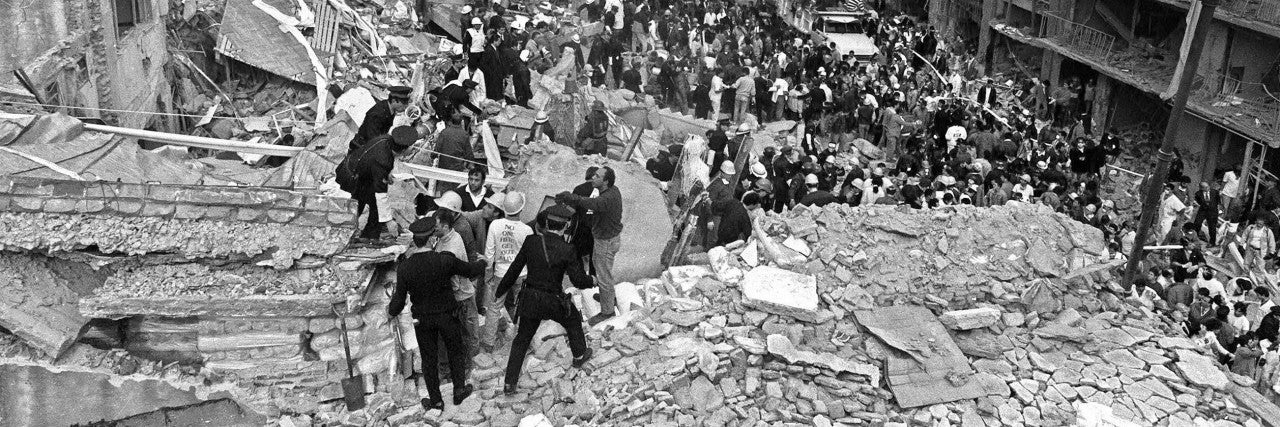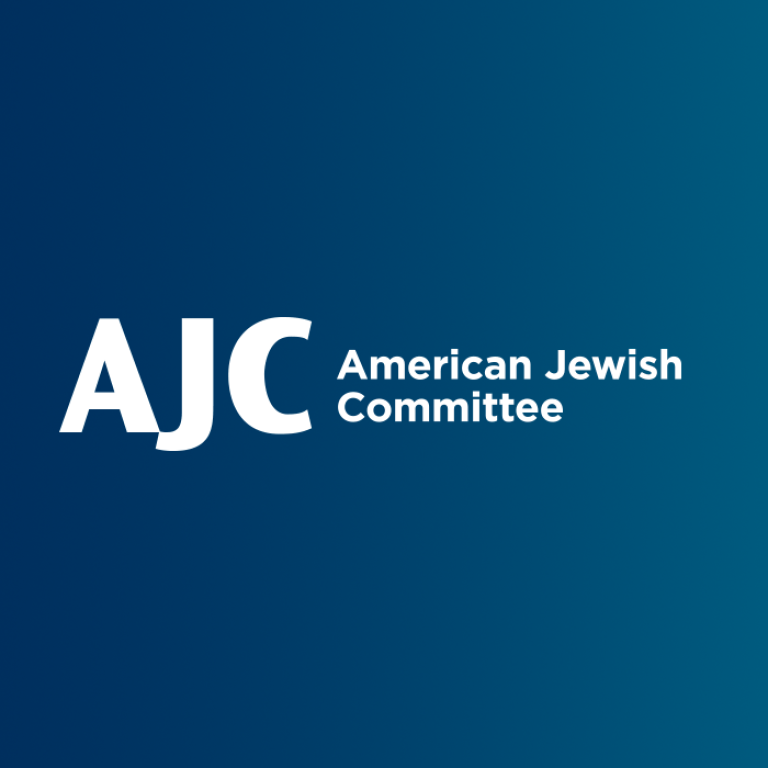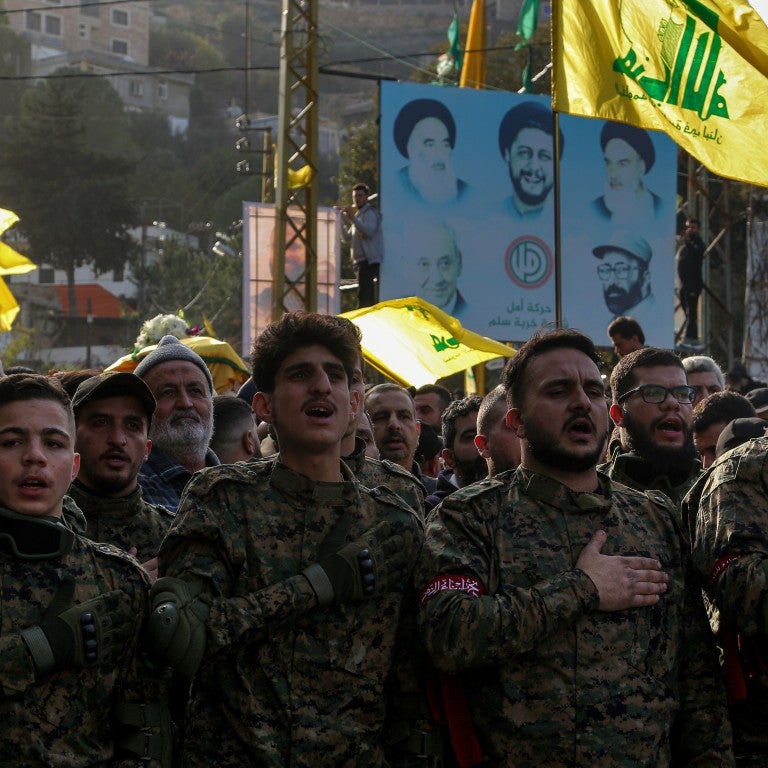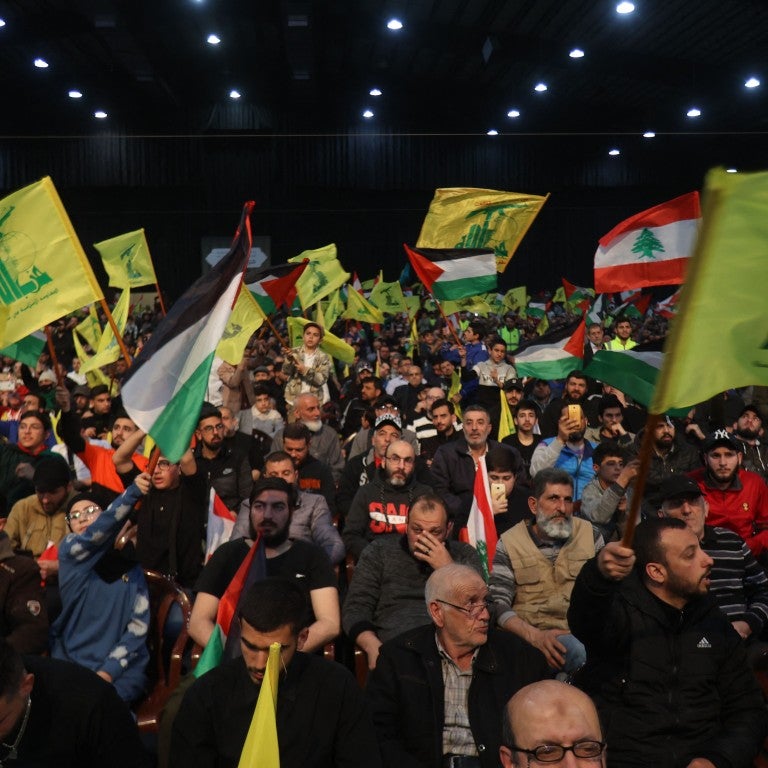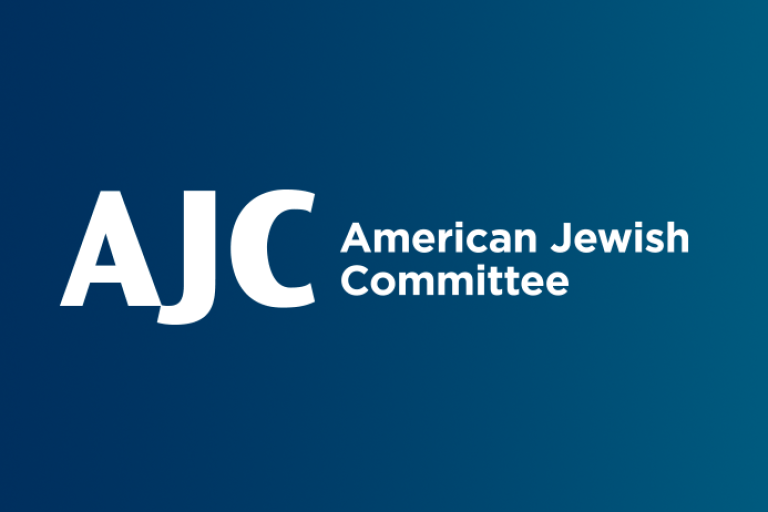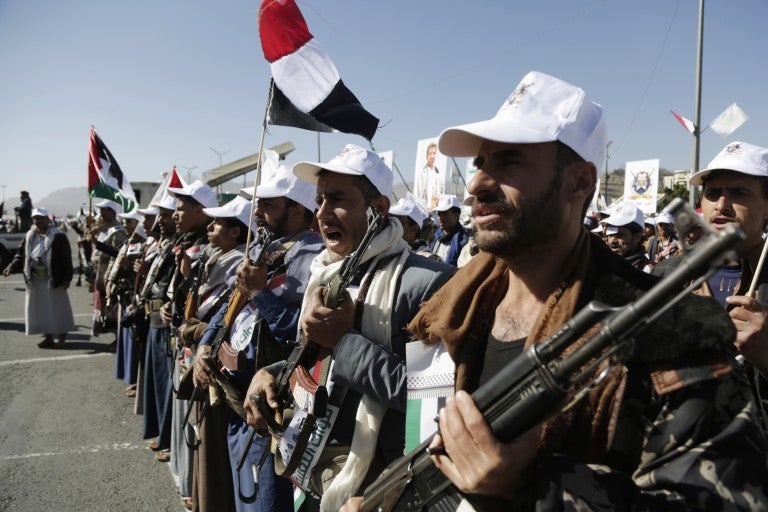July 17, 2023
On July 18, Argentine and Jewish communities around the world commemorate the 1994 bombing of the Argentine Israeli Mutual Association (AMIA) building, the center of the Jewish community in Buenos Aires – the deadliest antisemitic attack outside Israel since the Holocaust.
Last month, Argentina became the first Latin American country to name a special envoy to combat antisemitism: María Fabiana Loguzzo, Argentina's ambassador to the International Holocaust Remembrance Alliance (IHRA).
The appointment fulfilled a promise made one year ago when Ambassador Deborah Lipstadt, U.S. Special Envoy to Monitor and Combat Antisemitism, made her first official appearance at Argentina’s U.S. Embassy in Washington D.C. for the opening of Ese Día (“That day”), a collection of survivors’ portraits by Argentine photographer Alejandra López.
"With this gesture, the Argentine government is conveying the importance that it places not only in the causes of justice and memory but in fighting antisemitism today and in the future," said Dina Siegel Vann, Director of AJC’s Arthur and Rochelle Belfer Institute for Latino and Latin American Affairs (BILLA).
“The AMIA anniversary is always a very sad occasion, but it also forces us to think about a lot of important themes for the Jewish people and for Argentina and for humanity at large, particularly at a time when we’re experiencing so much violence,” Siegel Vann added. “Terror continues. Antisemitism continues. This is a stark reminder of the dangers and horrible things that can be done by threatening or destructive forces, but at the same time the redeeming power of memory and human solidarity.”
‘Not just an attack against Jewish community, but against Argentina’
After a turbulent investigative journey, Argentina has laudably identified Iran and Hezbollah as responsible for the terrorist attack in which a suicide bomber drove the explosive-laden truck into the six-story AMIA building.
In 2020, Argentine President Alberto Fernández reaffirmed his government’s commitment to bring to justice those responsible during a historic conversation hosted and broadcast by American Jewish Committee (AJC).
“The truth is that for Argentines, the AMIA attack is very painful. This was not an attack against the Jewish community only, it was an attack against Argentina,” President Fernandez said on an AJC Advocacy Anywhere program. “The victims, many of them, were members of the Jewish community. But they were Argentines first and foremost and it hurts us as such.”
After a longtime push from AJC, former Argentine president Mauricio Macri signed a decree that added Hezbollah to a registry of terrorist organizations, joining Israel, U.S., Canada, Netherlands, Bahrain, Arab League, Gulf Cooperation Council, and the United Kingdom. Since then, 11 other countries – Paraguay, Colombia, Honduras, Germany, Kosovo, Lithuania, Serbia, Guatemala, Estonia, Latvia, and Slovenia – have designated Hezbollah a terrorist organization in its entirety.
More than a quarter-century after the AMIA attack, Argentina and other Latin American countries have become “much more aware and much more sensitized to what this attack represented not only for the Jewish community but for Argentina and society as a whole,” Siegel Vann said.
In October 2021, the Organization of American States named Fernando Lottenberg as Latin America’s first Commissioner for Monitoring and Combating Antisemitism, a position created and announced at the 2021 AJC Global Forum. At another Global Forum two years earlier, OAS Secretary General Luis Almagro revealed that the OAS would adopt the IHRA Working Definition of Antisemitism. Argentina, Colombia, and Guatemala also have adopted the International Holocaust Remembrance Alliance (IHRA) Working Definition of Antisemitism.
But survivors still say the most meaningful tribute would be the prosecution of those responsible, abroad and within the country, and a full reckoning for the nation’s failure to hold anyone accountable. The only people convicted in connection with the bombing have been the individual who provided the van to undertake the attack and some low-level security officials who conspired to cover it up.
In June, a federal judge in Argentina issued an international arrest warrant for four Lebanese citizens who may be residing in Paraguay under suspicion of having participated in the attack.
Within two days of the attack, AJC was on the ground in Argentina to show solidarity with the Jewish community and put pressure on its government to find those responsible. That support has never waned. To this day, AJC continues to press Argentine officials to name all the nefarious actors behind the crime, to hold the criminals accountable, and to do what’s necessary to prevent future attacks.
To commemorate the tragic event’s anniversary, AJC looked back at events since the attack, as told by former AJC CEO David Harris, AJC Chief Policy and Political Affairs Officer Jason Isaacson, Siegel Vann, and longtime AMIA employees Anita Weinstein and Daniel Pomerantz, who both miraculously survived the deadly blast and still work there today.
Daniel Pomerantz, who held an accounting position at AMIA in 1994, was still marveling at Brazil’s fourth World Cup championship win the previous day. When a colleague from human resources called to discuss something work-related, he offered to go to his office. That decision saved his life. He was still there at 9:53 a.m., when the bomb struck his office and leveled much of the AMIA building.
DP: “He asked me a question, I answered and started to walk away. He insisted I stay just one more second to discuss. Fortunately, I survived this discussion. My office was destroyed.”
Anita Weinstein, director of documentation and the information center for AMIA, worked in a separate building just a couple of blocks away. But in 1994, she also was assigned to help organize AMIA’s centennial celebration. Around 9:30 a.m., she walked down the street, entered the main building, and went up to the second floor to see a colleague whose office was toward the rear of the building.
AW: “That made a great difference. As soon as I arrived there the explosion happened. Everything started to shake. We could not breathe. We could not see very well. Those moments, those minutes, that time was terrible.”
Weinstein climbed to an adjacent roof. From there, she looked down and saw the unforgettable scene of destruction, reminiscent of the bombing of the Israeli embassy just two years earlier that killed 29 people.
AW: “That was the first moment we could see the terrible shape of the building, the debris still falling, the horrible moment when we understood that there had been a bombing again.”
David Harris, AJC’s CEO at the time, recalls hearing news of the attack in his New York office. Terrorist attacks, which at the time were increasingly targeted at Israelis, were sadly becoming routine. But as the scope of the atrocity became known, it was clear that this attack was like no other.
DH: “The magnitude of this emerged through the news. Remember, this was pre-Internet, so it took a little longer for the news to be transmitted and verified. But it became clear that this was the single largest terrorist attack against a Jewish target outside of the State of Israel in post-war history.”
DH: “A hundred questions were raised. If there were two attacks in two years, would there be a third attack? It seemed pretty logical. Would it be limited to Buenos Aires? Would it be elsewhere? Was this domestic? Was this international?”
Harris tapped Jason Isaacson and Jacob Kovadloff, then AJC Director of Latin American Affairs, to go straightaway to Buenos Aires. Nearly 17 years earlier, Kovadloff, an Argentine national, had worked for AJC on the ground in Buenos Aires before fleeing the death squads of the military junta.
Isaacson recalls seeing family members gathered on the steps of the Chagall Cultural Center in Buenos Aires, their eyelids swollen, their stares blank, waiting to hear if their loved ones survived.
JI: “This was the worst attack against Jews that had ever happened in the Americas. It was overwhelming. The city was really shaken. The community was shaken. The country was shaken.”
He recalls then-President Carlos Menem weeping on national television and the 200,000 Argentines who filled the downtown Plaza de los Dos Congresos for hours in the freezing rain to sing Argentina and Israel’s national anthems, recite the mourner’s kaddish, and demand justice.
Government offices had been closed by decree and the trade union federation had called on members to stop work and attend the rally. Banners in Spanish proclaimed: “No to violence,” “Standing up against terror demands that justice is done,” and “Today we are all Jews.”
JI: “In private meetings with AJC, Interior Minister Carlos Ruckauff and Foreign Minister Guido Di Tella were firm in their resolve to trace the source of anti-Jewish terror to its roots -- whether in Hezbollah or another Middle East terrorist group, or in a domestic cell of fanatical antisemites, or possibly both… They vowed continued cooperation with U.S. and Israeli intelligence services.”
But in the weeks, months, years, and decades to come, those promises were never fulfilled, and justice proved elusive. When Isaacson flew out of Argentina a week later, he had no idea that solving the case would be one of his most frustrating and futile challenges to come.
JI: “To keep the pressure on, to keep the spotlight focused on Argentina, we would publish every year on the anniversary a report on what happened with the investigation. Where is the justice? Where is the accountability? What really happened? Argentina had a history of Nazi sympathizers and Nazi SS guys who ended up living there – a whole pool of potential people who hated Jews and would very much like to attack a large Jewish target. It was clear it was a friendly environment for people who hate Jews.”
Hero in Aftermath of Argentina Israeli Embassy Attack: We Must Seek Justice
Harris resolved to go to Argentina annually, which he did for over a quarter of a century until the pandemic.
DH: “This went very, very high on our agenda. Over the months and years, there have been countless meetings with Argentine officials, Argentine presidents, foreign ministers, interior ministers, justice ministers, ambassadors to Washington, consuls general in New York, and other cities across the U.S. I don’t know how many. To make a long story short, frustration on steroids.”
Dina Siegel Vann worked as director of political affairs for the Mexican Jewish community at the time of the attack. Mexico was in the political turmoil and in the midst of presidential elections and the news out of Argentina came as yet another troubling development.
DSV: “As a Latin American Jew, it shocked us all… We were not used to Jewish institutions in the region being attacked the way this happened. This really increased our sense of vulnerability and made us aware we were a target. We could be a target anywhere, anytime.”
Harris said Argentina had been woefully ignorant of terrorist threats in the Middle East and had turned a blind eye to the tentacles of those terrorist networks in Latin America – particularly where the borders of Argentina, Brazil, and Paraguay meet. That region, known as the Triple Frontier, had become a hub for Shiite Muslim terrorists, like Hezbollah.
DH: “You had a combination of things in Argentina. There was a lot of corruption and there was a lot of unpreparedness. Argentina was thousands and thousands of miles away from the Middle East. They weren’t ready for this. They didn’t understand Middle East terrorism, how to track it, how to know it, how to confront it. This was out of their realm. As it emerged that this had international fingerprints, as it emerged that the likeliest suspects were Iran and Hezbollah, as it emerged that there might well be local connections with the Iranian Embassy in Buenos Aires and the Triple Frontier, there were a lot of people in the system who did not want to know the answers.”
When Siegel Vann joined AJC in 2003, the crime was still unsolved. After a nine-year trial with 588 volumes of evidence and 1,284 witnesses, a court acquitted 22 Argentines who had been indicted as the local connection behind the terrorist attack. Instead, the head judge involved in the investigation, the former president, and the intelligence chief were indicted for obstructing justice. The AMIA case would become one of Siegel Vann’s top priorities.
DSV: “It’s a betrayal in so many ways – a betrayal of Argentina’s commitment to democracy, to a culture ]of inclusion and to the Jewish community as a valued element or sector of Argentine society; a betrayal of several governments’ commitments to seeking justice. For whatever reasons – economic, political – they chose to betray the commitment they had made to the Jewish community not only in Argentina but around the world.”
That betrayal led a group of family members who lost their loved ones, to give up on the government, file a lawsuit, and appeal to the Inter-American Commission on Human Rights. In 2005, the Argentine government admitted to that commission that successive administrations had not done enough. Government officials promised a clear and transparent investigation and introduced the possibility of reparations for victims’ families. But even that did not bear fruit.
President Nestor Kirchner had already taken one positive step in 2004 by appointing special prosecutor Alberto Nisman to resume the investigation. Within two years, Nisman produced an 801-page report, indicting seven Iranian officials, including former President Ali Akbar Rafsanjani and Hezbollah’s senior military commander Imad Mugniyah.
The mastermind of the crime, Nisman said, was a man named Mohsen Rabbani, a former leader at a mosque in Buenos Aires called Al Tawhid who went on to serve as a cultural attaché at the Iranian Embassy.
Based on Nisman’s report, in 2007 Interpol issued “red notices,” or arrest warrants for five Iranian officials – many of whom had left the country before the bombing – and called for their extradition.
DP: “They should be in jail right now. No one is in jail.”
That same year, Kirchner was succeeded by his wife, Cristina Fernandez de Kirchner, an election hailed as a victory for the Jewish community.
During the first years of her presidency, she regularly appealed to the United Nations General Assembly to put pressure on Iran. She often came with a delegation of AMIA survivors. And when Iranian officials stood to speak at the UN, Argentine delegates symbolically walked out.
But after her husband’s death in 2010, Fernandez de Kirchner seemed to do an about-face. She traveled to the United Nations without AMIA survivors and when then-Iranian President Mahmoud Ahmadinejad rose to speak, Argentina’s delegates stayed seated.
In 2012, Pomerantz heard from a journalist.
DP: “He announced that Argentina is going to sign an agreement with Iran in a meeting in Syria. The reaction of all of society in Argentina was [that] it’s not credible. To sign an agreement with the perpetrators, what kind of decision is that? One year later, we discovered it was true. Since the first moment, it was clear that Iran was to be the beneficiary.”
Fernandez de Kirchner and Iranian leaders signed a Memorandum of Understanding in 2013 to launch a joint investigation dubbed a “truth commission.” The agreement said nothing about the Iranian suspects already named.
“We will never again let the AMIA tragedy be used as a chess piece in the game of foreign geopolitical interests,” Fernandez de Kirchner tweeted.
DH: “This was beyond insanity. I said at the time that it was like asking Nazi Germany to help establish the facts of Kristallnacht. Every Argentine president for 25 years had looked us earnestly in the eye and said we’re different from everybody else. We’ll get to the bottom of this. We care about this as much as you do. This was our country. This was an attack on our country. And guess what? They’ve all come up short.”
The memorandum raised Nisman’s suspicions too and he launched a separate inquiry. Hours before he was to testify about the results in front of the Argentine Congress, he was found dead in his home, having been shot in the head. Authorities have said it was suicide, but not many believe that story, including current AJC CEO Ted Deutch, who as a congressman in 2018 urged full transparency on the circumstances of his death and the AMIA bombing investigation.
“Alberto Nisman committed himself to uncovering the truth of the horrific AMIA bombing,” Deutch wrote at the time. “He refused to let Iran or Hezbollah get away with this act of terrorism, and he refused to let corrupt officials cover up the facts and wash their hands of this horrible attack. His hard work was not in vain."
Argentina’s government hadn't been the only one to disappoint Harris. During one of AJC’s diplomatic marathons shortly after the attack, Russian foreign minister Yevgeny Primakov had told Harris that Russia’s intelligence services had gotten wind of a potential terrorist attack in Latin America prior to the AMIA attack and shared the information – to no avail.
DH: “He said it in Russian. His interpreter said it then in English. I speak Russian. So I heard it twice very accurately in Russian and in English. There were a couple of other people in the room. I reported this to the Argentine foreign minister Guido Di Tella who took great interest in it. He immediately dispatched his ambassador in Moscow to go to the foreign ministry in Moscow and to make inquiries about this. Primakov, without blinking an eye, denied ever saying anything. He stonewalled it. ‘I never said it. It’s not true,’ and the Argentines could not break through this. So the judge asked me to come to Buenos Aires. I flew from here to go to his judge’s chambers where he and his staff queried me.”
The exchange led nowhere. Eventually, Harris and Siegel Vann took a broader approach of trying to persuade Argentina to declare Hezbollah a terrorist organization and put safeguards in place to prevent another attack.
DH: “The question has remained for us: ‘Do Iran and Hezbollah and kindred spirits view Argentina as a soft target? They had two successful terrorist attacks. They did so with seeming impunity. Could there be a third?’ Part of our agenda became, how do we, broadly speaking, get Argentina to adopt an anti-terrorism law, which they did not have? And in doing that, how do we get Argentina to create their own terrorism list and shouldn’t Hezbollah be on the list? After all, Hezbollah was involved in two deadly attacks. We have not had success with the Hezbollah issue in Argentina until now. But things do not move swiftly or linearly in Argentina, I’ll put it that way.”
Argentina Designates Hezbollah as Terror Organization
AJC delegations met with the Argentine justice minister to push for that anti-terrorism legislation.
DH: “It was one of many meetings, but I remember that one very vividly. I was sitting across from the justice minister. At a certain point I said to him ‘Mr. Minister may I ask you a question? If I want to support Hezbollah, can I go to one of the hotels in Argentina, take a ballroom and host an event and raise money for Hezbollah? Is that legal or illegal?”
“He said almost immediately ‘You could not do it,’ and I said to him ‘I’m glad to hear that. Could you tell me on what basis would I not be able to do it?’ He said ‘Because Hezbollah is on the United Nations terrorism list, and we in Argentina abide by the UN terrorism list.’ I said to him ‘Mr. Minister, with respect, Hezbollah is not on the United Nations terrorism list.’ He said ‘Are you sure?’ And I said ‘Yes, sir, I am,’ at which point we had the very unusual situation where he essentially asked for a time out. He and his entourage stood up on their side of the conference room and they huddled, and then they came back, as I remember it, he said ‘Yes, my staff confirmed you’re right.’”
“All of this stuff is such a tale of tragedy, of incompetence, of empty-handedness in the end.”
Harris is no stranger to the long game. He knows diplomacy doesn’t always yield an immediate outcome. Still, nearly 28 years after the AMIA attack, he wishes there was closure for the victims. They should not have to play the long game.
DH: “We were not going to leave the Argentine Jewish community wounded, scarred, or in battle alone. No matter how frustrated they are with the Argentine government and judicial systems and corrupt judges and all the rest, they must never feel alone. Our job was to make sure they felt they had a lifeline, and through that lifeline, they had solidarity, and they had support, and they had a voice in Washington, and they had a voice in other capitals that would keep this story alive. That part of AJC is very important.”
That feeling of empowerment is why Pomerantz, continues to be a close partner of AJC and work side by side to ensure the well being of Argentine Jewry and to strengthen the trilateral Argentina-US-Israel relationship.
Pomerantz said the attack killed and injured so many of the small community, there are very few degrees of separation between someone killed in the blast and other Jews in Argentina. In fact, Harris’s son did a college study abroad experience with a family in Buenos Aires who happened to have lost their son at AMIA that day.
Still, the Jewish community in Argentina, the largest in Latin America, has never been more vibrant, Pomerantz said.
DP: “The Jewish community is standing and fighting. We are seeing the best situation for our community. They didn’t win.”
In July of 2019, the former president Mauricio Macri signed a decree that added Hezbollah to a registry of terrorist organizations, freezing its assets with an aim to curb its terrorist activity. Additionally, Argentina has adopted the IHRA Working Definition of Antisemitism. These were long overdue steps in the right direction.
DSV: “We are most pleased that President Alberto Fernandez endorsed his predecessor's presidential decree establishing a registry of terrorist organizations including Hezbollah. This initiative was replicated by Guatemala, Paraguay, Honduras, and Colombia. Hezbollah's destructive presence and activity in the Americas and beyond has to continue to be addressed collectively. That is why we would hope that Argentina would take a leadership role to ensure that the rest of the countries in Latin America follow suit.
We are also thrilled that Argentina joined Uruguay and the Secretary General of the Organization of American States (OAS) Luis Almagro in adopting the IHRA Working Definition of Antisemitism. With the sixth largest Jewish community in the world and the uptick in global antisemitism, Argentina sends a clear message that anti-Jewish hatred, in all its forms, will not be tolerated in the country. Antisemitism today in Latin America is mostly expressed through BDS initiatives and the IHRA Definition clearly includes delegitimization of Israel as a form of antisemitism.
At a moment in time when there is a rise in global antisemitism, the appointment of Fernando Lottenberg as OAS Commissioner to Monitor and Combat Antisemitism is a momentous step to ensure that countries in the region and their Jewish communities are well equipped to effectively address the challenges stemming from expressions of antisemitism from every possible source.
Isaacson insists it’s not too late to confront the past.
JI: “It needs a much higher level of government commitment and commitment to transparency and revelation of the cover up that existed for a longtime. A boldness and self-critical aspect that will allow for a real examination of what happened and the intent to cover up what happened. Justice delayed is justice denied. That doesn’t have to be the end of justice It could still happen. It could still be pursued and realized. Hey, we’re still chasing some old Nazis.”
“Would it bring back 85 souls? Would it relieve Argentina of the guilt of covering up this massive crime? No. But it would be a positive step.”
